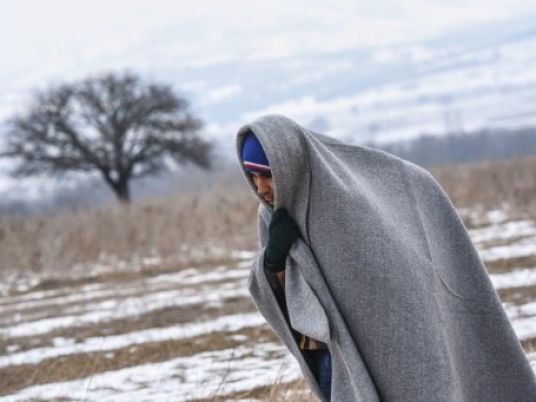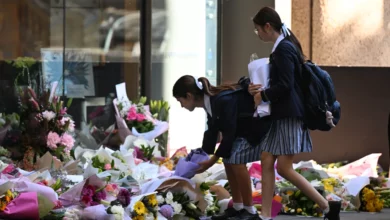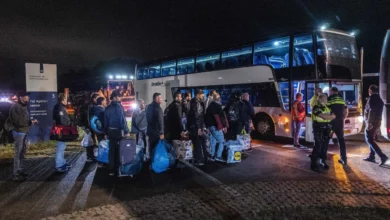
Taking inspiration from online accommodation service Airbnb, a young Egyptian man has launched a new website "EmergencyBNB" that connects refugees and victims of domestic violence with Americans who are willing to open their homes for a few days for free.
Amr Arafa, the founder of the online service, said that the US government can provide shelter for a homeless family who are victims of domestic violence, but such arrangements can take a long time to sort out. However, EmergencyBnB enables such families to find temporarily homes until they’re back on their feet.
“It is time that the sharing economy is considered as a means of helping others and not just as an economic opportunity,” he told streetsense, a Washington DC publication.
“We started with refugees and domestic violence victims due to the exigent nature of their need, as statistically 57 percent of homeless women report that domestic violence was the immediate cause of their homelessness. While governments take serious steps to address these issues, it is time that society considered more creative and even more efficient solutions,” he said.
In 2005, the 34-year old Arafa flew to the United States to study at Harvard University. Then, after a long struggle with temporary visas, he received a Green Card in 2015. The same year, a video went viral of a Hungarian woman trying to arrest a Syrian refugee and his child who were escaping from the police.
"The video resonated with Arafa, and, with his Green Card in hand, he decided it was time to help," the Washington Post said.
In the beginning, Arafa went through the Airbnb experience himself. In November 2015, he advertised his studio apartment in Washington’s Foggy Bottom as an Airbnb destination for only US$10 per night. The fee was, in fact, more of a reservation fee, being refunded once the guests had arrived.
In his advert, he emphasized that only refugees and domestic violence victims who would be hosted.
Arafa aims to make his guests feel more comfortable and reassured than when they arrived. He offers fresh sheets and towels, regularly checks in on guests and offers help in other areas, such as driving one guest to an embassy to finish paperwork
The reviews on his site point to the pleasant experiences of his guests so far.
"He will restore your faith in humanity,” one guest wrote on his Airbnb page. “I plan on paying it forward and hope whoever stays there next will do the same.”
After awhile Arafa received many messages from travelers in need of a free place to stay. He then realized that Airbnb was not the best place for his message, and he launched his own website, restricting potential guests to refugees and victims of domestic violence.
Arafa tells the story of a young women in her mid-30s who was abused by a roommate while staying at his apartment.
“She came with several bags as if she’d completely emptied her place to flee domestic violence. We had a quick discussion to calm her down,” he said.
In addition to victims of domestic violence, there are plenty of refugees seeking temporary shelter while they navigate the system of benefits and other administrative hurdles in the US.
The United States has received more than 63,000 refugees since October 1, 2015, according to the Pew Research Center.
The most challenging part of the project so far, says Arafa, is convincing other people to open their homes to people in dire need. While many are understandably hesitant, there have also been several takers.
After reading about the project, Steve Graybill and his wife offered a spare bedroom in their Silver Spring home, partly due to an interest in meeting people from different cultures.
“It’s a scary thing to open your home to a stranger," he said. "It’s okay to be afraid, but we shouldn’t let those fears control us."




